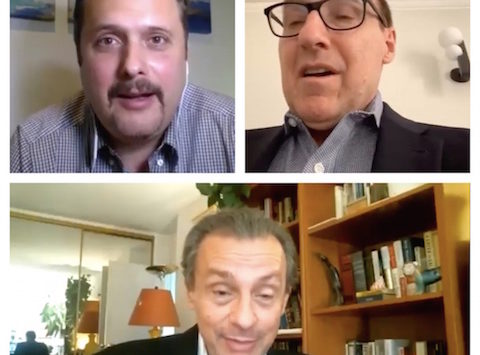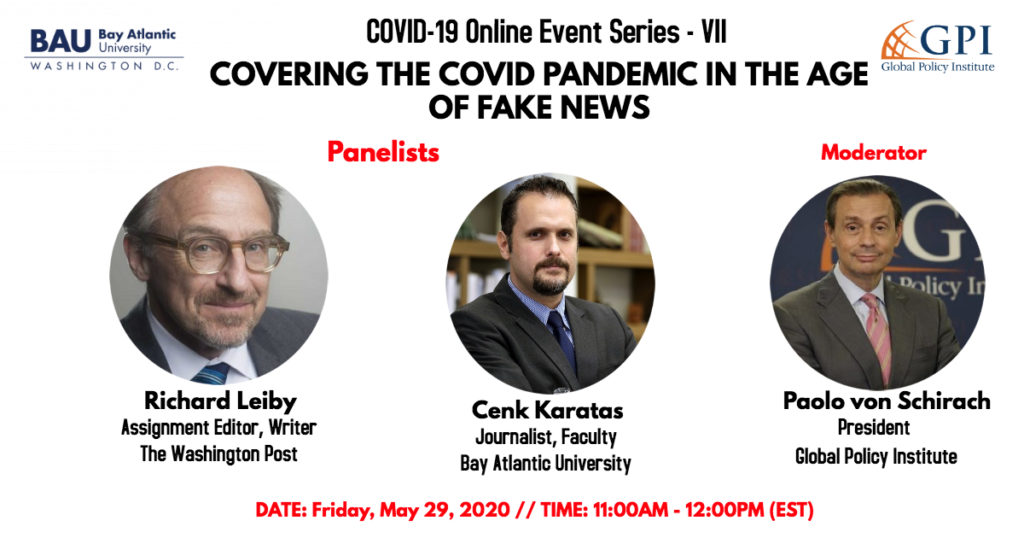Events

Webinar: Covering the Pandemic in the Age of Fake News
COVID-19 Online Event Series – VII
How can we sift through the barrage of unverified information?
The GPI & BAU joint COVID-19 Online Event Series continues. On May 29, the Global Policy Institute and Bay Atlantic University held an online event titled:
Covering the Pandemic in the Age of Fake News
Panelists
Richard Leiby, Assignment Editor & Writer, The Washington Post
Cenk Karatas, Journalist, GPI Fellow, BAU Faculty
Moderator
Paolo von Schirach, President, Global Policy Institute, and Chair Political Science and International Relations, Bay Atlantic University
Full Video
Event Summary:
Is the disorientation caused by this unprecedented global public health crisis leading to a global information crisis? Science has yet to find a cure for the pandemic; but there is an abundance of conspiracy theories mixed with manipulations and distortions. How can we navigate through all this? What can we believe? How can we differentiate facts from bias and outright fabrications? How is the story of COVID-19 being told in various media? How can we avoid the pitfalls of fake news?
Richard Leiby pointed out that in the case of coronavirus we have both, old fashioned political distortion and a whole universe of conspiracy theories and other crackpot ideas that find wide following via internet channels. Manipulation of facts and news for political ends is a form of fake news. In all this, legitimate media organizations have a hard time sifting through the cacophony of pseudoscience, distortions and exaggerations regarding the pandemic. They do their best to be professional and responsible in their effort to inform the public. However, it is not clear that we have a good way to put an end to this avalanche of implausible theories.
Cenk Karatas argued that consumers of information have the responsibility to do their own “due diligence” work when it comes to examining theories and “facts” related to the coronavirus pandemic. It is really incumbent upon the individual consumers of information to educate themselves and be therefore better equipped to evaluate strange ideas that are not backed by solid facts vetted by third parties. Of course, this self-education requires effort. And most people, unfortunately, opt for the easy solution of believing what seems to satisfy their desire to have an explanation, any explanation that settles the matter.
Both panelists agreed that NGOs with the mission of sorting what is and what is not true perform a valuable role in our society. They can help in the general effort of separating facts from fiction. But the problem is that we are now swimming in an ocean of information, and most of it is unreliable; while uneducated consumers are willing to believe what is in a video because it is professionally produced, with good imagery and appropriate background music. Many naïve viewers are inclined to conclude that since the video is well presented its content must be true.
